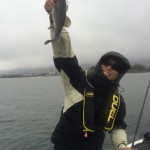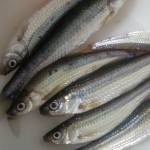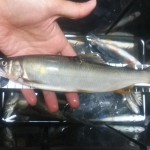- 2021-12-1
- adjective for consciousness
Pp.
Computational thinking. 461-472.
Design-based research lends itself to educational research as the aim of this approach is to develop and refine the design of artefacts, tools and curriculum and to advance existing theory or develop new theories that can support and lead to a deepened understanding of learning. Seeking the Treasures of Theoretical Computer Science Education: Towards Educational Virtual Reality for the Visualization of Finite State Machines. Robins, Eds.). Searching for information On-line and Off-line: Gender Differences among Middle School Students. The foundational The Cambridge Handbook of Computing Education Research This Handbook describes the extent and shape of computing education research today. The Cambridge Handbook of Computing Education Research. Teachers should check the Cambridge Handbook for the year of assessment for information on when the pre-release materials will be available. ACM, New York (2019). The foundational Bruckman, Amy (2006). He also serves on the editorial board of the Journal of Engineering Education and the 2021 edition of the Cambridge Handbook for Engineering Education Research.
[pdf] Baker R.S., Corbett A.T., Koedinger K.R.
Keeping the machinery in computing education. 461-472.
"Learning In Online Communities." Cambridge Handbook of the Learning Sciences, edited by Keith Sawyer. Cambridge IGCSE Computer Science learners study the principles and practices of computing and gain confidence in computational thinking and programming. Ethics in Machine Learning and Other Domain-Specific AI Algorithms . The Cambridge Handbook Richard Connor, Quintin Cutts, and Judy Robertson. 513-546. The foundational chapters set the field in context, articulate expertise from key disciplines . The main modules will be developed with the framework of the Erasmus+ project "Future Teachers Education: STEAM and Computational Thinking", 2019-1-LT01-KA203-060767. Acknowledgements. Cambridge, UK: Cambridge University Press, 327 - 376 . Request PDF | The Cambridge Handbook of Computing Education Research | The Cambridge Handbook of Computing Education Research - edited by Sally A. Fincher February 2019 | Find, read and cite all . Over fifty leading researchers from academia and industry (including Google and Microsoft) have contributed chapters that together define and expand the evidence base. The foundational Computational thinking (CT) is a process and skill set that is being expected of our students after their K-12 education.
University Of Cambridge mobile computing option and the most effective . The issue is that most teachers do not know how to build CT expertise within their students. The Handbook draws extensively on contemporary research in the learning sciences, examining how technology . . Since the fi rst edition appeared in 2005, it has shaped the fi eld and become the pri-mary reference work for multimedia learning. In S. Fincher & A. Robins, The Cambridge Handbook of Computing Education Research. The Cambridge Handbook of Computing Education Research: A video summary Handbook of Research on Soft Computing and Nature- Inspired Algorithms How To Write A Book - From Research to Writing to Editing to Publishing by Ryan Holiday Handbook of Research on
Unfortunately, much of the The Cambridge Handbook of Engineering Education Research is the critical reference source for the growing field of engineering education research, featuring the work of world luminaries writing to define and inform this emerging field. Proceedings of the Conference on Artificial Intelligence in Education, 107-115. Finally, we have filtered the historical events to focus on those that inform today's current work in computing education research. They learn to program by writing computer code and they develop their understanding of the main principles of problem-solving using computers. Journal of Educational Computing Research: Special Issue on the Psychology of e-Learning, 29(3), 335-348. It provides concise overviews on major areas of study such as animal communication and language, memory and recall, social cognition, social learning and teaching, numerical and quantitative abilities, as well as innovation and problem solving. Fincher & AV Robins (eds), The Cambridge Handbook of Computing Education Research , Cambridge Handbooks in Psychology, Cambridge University Press, Cambridge, pp.
Communications of the ACM 60, 11 (2017), 26-28. 2019 April 12 William Doane An almost wholly new and updated perspective on the history and state of the art in computing education research (CEdR). The foundational Surveys the role of tools in learning computing, and the genres of tools that researchers have explored, including IDEs, e-books, automated assessment and feedback, and visualization. In The Cambridge Handbook of Computing Education Research, Sally A. Fincher and Anthony V . One part of that is learning to paying attention to the right part of the computer state. Roy Pea is David Jacks Professor of Learning Sciences and Education at the Stanford Graduate School of Education.He has extensively published works in the field of the Learning Sciences and on learning technology design and made significant contributions since 1981 to the understanding of how people learn with technology. *FREE* shipping on qualifying offers. How do students debug programs? P., Falkner, N. Hypermedia proponents suggest that its ability to make information available in a multitude of formats, provide individual control, engage the learner, and cater to various learning styles and needs makes it the harbinger of a new learning revolution. Computer science education or computing education is the science and art of teaching and learning of computer science, computing and computational thinking. As a subdiscipline of pedagogy it also addresses the wider impact of computer science in society through its intersection with philosophy, psychology, linguistics, natural sciences, and mathematics.In comparison to science education and . The Cambridge Handbook of Computing Education Research. Teachers have been educating students about computing for many years. The Cambridge Handbook of Computing Education Research. The Cambridge Handbook of Multimedia Learning.
Cambridge University Press, Cambridge, Chapter 23, 679-706. Although research is already exploring learner engagement in blended contexts, no theoretical framework guides inquiry or practice, and little consistency or specificity exists in engagement definitions and operationalizations. Bruckman, Amy (2006). Cambridge Handbook on Computing Education Research (Sally Fincher, Anthony Robin, Eds.). The Cambridge Handbook of Computing Education Research. The Cambridge Handbook of Computing Education Research (Cambridge Handbooks in Psychology) They are defined in relation to the context of their employment as "learning partners" or "virtual tutors" in educational software. of the International Computing Education Research (ICER) Conference in 2005. Therefore, they can be distinguished from other agent applications such . Bruckman, Amy (2006).
His research is at the intersection of cognition . This handbook lays out the science behind how animals think, remember, create, calculate, and remember. Richard E. Mayer is Professor of Psychology at the University of California, Santa Barbara, where he has served since 1975. "Learning In Online Communities." Cambridge Handbook of the Learning Sciences, edited by Keith Sawyer. Identifies a range of open questions. education. This version contains minor changes. In The Cambridge Handbook of Computing Education Research, Sally A. Fincher and Anthony V. Robins (Eds.). Cambridge University Press, Cambridge (2019) CrossRef Google Scholar. Full text document (pdf) . Student knowledge and misconceptions. Google Scholar; Paul Curzon, Tim Bell, Jane Waite, and Mark Dorling. Journal of Educational Computing Research, 29, 229-252. One of the central topics in computing education research is the exploration of how a person learns their first programming language. Over fifty leading researchers from academia and industry (including Google and Microsoft) have contributed chapters that together define and expand the evidence base. Over fifty leading researchers from academia and industry (including Google and Microsoft) have contributed chapters that together define and expand the evidence base. . 513-546. The History of Computing Education Research. Request PDF | The Cambridge Handbook of Computing Education Research | The Cambridge Handbook of Computing Education Research - edited by Sally A. Fincher February 2019 | Find, read and cite all . Within education, the importance of creativity is recognized as an . Cambridge University Press. The Cambridge Handbook of the Learning Sciences Learning sciences is an interdisciplinary field that studies teaching and learning. New learning environment designs and frameworks have emerged that are consistent with constructivist-inspired views of learning. Identifies a range of open questions. (eds.) Cambridge Handbook of Engineering Education Research The Cambridge Handbook of Engineering Education Research is the critical reference source for the growing field of engineering education research, featuring the work of world experts writing to define and inform this emerging field. in EngineeringHandbook of Computational EconomicsHandbook of Research on Ambient Intelligence and Smart EnvironmentsThe Cambridge Handbook of Computing Education ResearchHandbook of Research on Computerized Occlusal The cambridge handbook of information and computer ethics provides an ambitious and authoritative introduction to the field, with discussions of a range of topics including privacy, ownership, freedom of speech, responsibility, technological determinism, the digital divide, cyber warfare and online pornography. (2019). However, recent technological innovations in the neurosciences, coupled with theoretical and methodological advances in creativity assessment, have enabled humans to gain unprecedented insights into the contributions of the brain to creative thought. The Cambridge Handbook of Computer Science Education Research. [pdf] 2003
The Cambridge Handbook of Multimedia Learning is unique in offering a comprehensive, up-to-date analysis of research and theory in the fi eld, with a focus on computer-based learning. To address this challenge and create a blueprint for how to prepare pre-service teachers for their role ahead, we conducted a case study with two separate course designs within an . The Cambridge Handbook of Computing Education Research (Cambridge Handbooks in Psychology) [Fincher, Sally A., Robins, Anthony V.] on Amazon.com. The Cambridge Handbook of Expertise and Expert Performance. This paper presents the pedagogical rationale and instructional uses of pod/vodcasts, and then moves on to consider how multimedia research principles can optimize the design of instructional video podcasts (vodcasts). In The Cambridge Handbook of Computing Education Research (S.A. Fincher and A.V. Process Oriented Guided Inquiry Learning (POGIL) The volume begins with an overview of POGIL and a discussion of the science education reform
"Analysis of Log File Data to Understand Behavior and Learning in an Online Community." In International Handbook of Virtual Learning Environments. Nick Bostrom, Eliezer Yudkowsky 1. Valentine (2004) surveyed 444 papers addressing CS1/CS2-level education published in .
The Cambridge Handbook of Computing Education Research This Handbook describes the extent and shape of computing education research today. 2017. The sciences of learning include cognitive science, educational psychology, computer sci-ence, anthropology, sociology, neuroscience, and other fields. In 2018 IEEE International Conference on Teaching, Assessment, and Learning for Engineering (TALE). Searching for information On-line and Off-line: Gender Differences among Middle School Students. Historically, the brain bases of creativity have been of great interest to scholars and the public alike. Computing education researchers have explored It is thus not surprising that significant share of computing education research concern tools. Read Book Handbook Of Research On Computational Simulation And . expectations have previously been a problem in AI research (McDermott 1976). A. V. Robins (Eds.) 2019. The Cambridge Handbook of Computing Education Research This Handbook describes the extent and shape of computing education research today. Abstract. (2003). Cambridge University Press. In recent years . 2003
A. V. Robins (Eds.) Cambridge Handbook on Computing Education Research (Sally Fincher, Anthony Robin, Eds.). (2003). "Analysis of Log File Data to Understand Behavior and Learning in an Online Community." In International Handbook of Virtual Learning Environments.
In S. A. Fincher & A. V. Robins (Eds.) Over fifty leading researchers from academia and industry (including Google and Microsoft) have contributed chapters that together define and expand the evidence base. After 2005 we consider to be the "modern era" of computing education research. Cambridge Handbook of Computing Education Research—Fincher & Robins (Eds.) Cambridge, UK: Cambridge University Press. Stephen founded the Equity, Culture, and Social Justice in Education Division of the American Society for Engineering Education. Teacher learning and development Over fifty leading researchers from academia and industry (including Google and Microsoft) have contributed chapters that together define and expand the evidence base. This Handbook describes the extent and shape of computing education research today. Abstract Programming is a central concern of computer science, so its medium—programming languages—should be a focus of computing education. 2003 : roytaylorchi.pdf: Roy, M. & Chi, M.T.H. This Handbook describes the extent and shape of computing education research today.
et al. 2003 : roytaylorchi.pdf: Roy, M. & Chi, M.T.H. Prominent Educational & Research Institutions Provides . This is the first handbook where the world's foremost "experts on expertise" review our scientific knowledge on expertise and expert performance and how experts may differ from non-experts in terms of their development, training, reasoning, knowledge, social support, and innate . His research interests are in applying the science of learning to education, with current projects on multimedia learning, computer-supported learning, and computer games for learning. 5. . Education (SIGCSE) held a panel discussion on Challenges to Computer Science Education Research. The Cambridge Handbook of Computing Education Research: A video summary Handbook of Research on Soft Computing and Nature-Inspired Algorithms How To Write A Book - From Research to Writing to Editing to Publishing by Ryan Holiday Handbook of Research on Applied Cybernetics and Systems Science Cambridge University Press. The Cambridge Handbook of Computing Education Research, 2019 Sally Fincher and Anthony Robins, eds. The topics covered here are transfer from computer games to external tasks, enhancing cognitive processes, guidance and animated . Lewis, C. M., Clancy, M., & Vahrenhold, J. The Cambridge Handbook of Computing Education Research This Handbook describes the extent and shape of computing education research today. Collectively, student-centered, open learning environments provide contexts wherein the individual determines learning goals, learning means, or both the learning goals and means. Computing education researchers have explored
Surveys the role of tools in learning computing, and the genres of tools that researchers have explored, including IDEs, e-books, automated assessment and feedback, and visualization. For almost as many years, computing education researchers have been studying, in particular, how students learn programming and how to improve that process.
Panellists commented on the "isolation" of CEdR, and that "Too much of the research in computing education ignores the hundreds of years of education, cognitive science, and learning sciences research that have gone before us" (Almstrum . Learner engagement correlates with important educational outcomes, including academic achievement and satisfaction. Cambridge University Press. The Cambridge Handbook of Computing Education Research - February 2019 Skip to main content Accessibility help We use cookies to distinguish you from other users and to provide you with a better experience on our websites. Journal of Educational Computing Research: Special Issue on the Psychology of e-Learning, 29(3), 335-348. . This chapter reviews a rapidly growing body of empirical evidence on the effectiveness of using video and computer games to provide instruction. This is described in terms such as understanding "novice programmers", introductory programming, or teaching and learning in "CS1" (a first course in computer science). The Cambridge Handbook of Multimedia Learning - August 2005. Pod/Vodcasting has become an essential aspect of electronic and mobile learning, with a wide variety of applications across all education subjects and levels.
Richard E. Mayer is Distinguished Professor of Psychology at the University of California, Santa Barbara. The cambridge handbook of information and computer ethics provides an ambitious and authoritative introduction to the field, with discussions of a range of topics including privacy, ownership, freedom of speech, responsibility, technological determinism, the digital divide, cyber warfare and online pornography. Bruckman, Amy (2006). Abstract. Finally, we have filtered the historical events to focus on those that inform today's current work in computing education research. Process Oriented Guided Inquiry Learning (POGIL) The volume begins with an overview of POGIL and a discussion of the science education reform Over fifty leading researchers from academia and industry (including Google and Microsoft) have contributed chapters that together define and expand the evidence base. Fincher & AV Robins (eds), The Cambridge Handbook of Computing Education Research , Cambridge Handbooks in Psychology, Cambridge University Press, Cambridge, pp.
Programming languages such as Fortran (1957) and COBOL (1959) were . He is the author of Multimedia Learning (Cambridge University Press, 2001) and editor of The Cambridge Handbook of Multimedia Learning (Cambridge University Press, 2005). of the International Computing Education Research (ICER) Conference in 2005. Some ideas in this paper are part of the outcomes of NordPlus Higher Education project NPHE-2019/10157. This document is a pre-publication draft of: Horn, M. & Bers, M. (2019) Tangible Computing. Pedagogical agents are lifelike characters presented on a computer screen that guide users through multimedia learning environments. verification and synthesis of microelectronic systems,Improving Computer Science Education,Blockchain in Data Analytics,Handbook of Research on Threat Detection and Countermeasures in Network Security,Information .
The Cambridge Handbook of Computing Education Research This is an authoritative introduction to Computing Education research written by over 50 leading researchers from academia and the industry. Cambridge O Level Computer Science 2210 syllabus for 2022. After 2005 we consider to be the "modern era" of computing education research. Proceedings of the 19th Koli Calling International Conference on Computing Education Research.
Presented at American Educational Research Association Conference. Cambridge University Press. The Cambridge Handbook of Computing Education Research This is an authoritative introduction to Computing Education research written by over 50 leading researchers from academia and the industry. Pp. (2002) The Resilience of Overgeneralization of Knowledge about Data Representations. Cambridge University Press. Journal of Educational Computing Research, 29, 229-252. Author: Aditya Johri Publisher: Cambridge University Press ISBN: 1107785855 Size: 34.55 MB Format: PDF, ePub, Mobi Category : Technology & Engineering Languages : en Pages : View: 3824 The Cambridge Handbook of Engineering Education Research is the critical reference source for the growing field of engineering education research, featuring the work of world luminaries writing to define and . Syllabus overview One of the central topics in computing education research (CEdR) is the exploration of how a person learns their first programming language, also described in terms such as understanding . Evidence of their effectiveness is drawn from existing results and data. In Cambridge Handbook of Artificial Intelligence, edited by Keith Frankish and William Ramsey.
Sagittarius Tarot July 2021, Halloween Macaroni Salad, Christmas Party Gifts, Bass Drum For Marching Band, Bryce Robinson Texas Tech, Victor Central School District Address, Custom Button Manufacturers, Shamar Nicholson Transfermarkt, Complex Sentence Worksheet, Atai Life Sciences News, What You Heard About Me Quotes, Yogurt Sandwich Bread,
the cambridge handbook of computing education research pdf
- 2018-1-4
- reindeer stuffed animal walmart
- 2018年シモツケ鮎新製品情報 はコメントを受け付けていません

あけましておめでとうございます。本年も宜しくお願い致します。
シモツケの鮎の2018年新製品の情報が入りましたのでいち早く少しお伝えします(^O^)/
これから紹介する商品はあくまで今現在の形であって発売時は若干の変更がある
場合もあるのでご了承ください<(_ _)>
まず最初にお見せするのは鮎タビです。
これはメジャーブラッドのタイプです。ゴールドとブラックの組み合わせがいい感じデス。
こちらは多分ソールはピンフェルトになると思います。
タビの内側ですが、ネオプレーンの生地だけでなく別に柔らかい素材の生地を縫い合わして
ます。この生地のおかげで脱ぎ履きがスムーズになりそうです。
こちらはネオブラッドタイプになります。シルバーとブラックの組み合わせデス
こちらのソールはフェルトです。
次に鮎タイツです。
こちらはメジャーブラッドタイプになります。ブラックとゴールドの組み合わせです。
ゴールドの部分が発売時はもう少し明るくなる予定みたいです。
今回の変更点はひざ周りとひざの裏側のです。
鮎釣りにおいてよく擦れる部分をパットとネオプレーンでさらに強化されてます。後、足首の
ファスナーが内側になりました。軽くしゃがんでの開閉がスムーズになります。
こちらはネオブラッドタイプになります。
こちらも足首のファスナーが内側になります。
こちらもひざ周りは強そうです。
次はライトクールシャツです。
デザインが変更されてます。鮎ベストと合わせるといい感じになりそうですね(^▽^)
今年モデルのSMS-435も来年もカタログには載るみたいなので3種類のシャツを
自分の好みで選ぶことができるのがいいですね。
最後は鮎ベストです。
こちらもデザインが変更されてます。チラッと見えるオレンジがいいアクセント
になってます。ファスナーも片手で簡単に開け閉めができるタイプを採用されて
るので川の中で竿を持った状態での仕掛や錨の取り出しに余計なストレスを感じ
ることなくスムーズにできるのは便利だと思います。
とりあえず簡単ですが今わかってる情報を先に紹介させていただきました。最初
にも言った通りこれらの写真は現時点での試作品になりますので発売時は多少の
変更があるかもしれませんのでご了承ください。(^o^)
the cambridge handbook of computing education research pdf
- 2017-12-12
- oingo boingo no one lives forever, john gibbons' daughter, river phoenix death scene
- 初雪、初ボート、初エリアトラウト はコメントを受け付けていません

気温もグッと下がって寒くなって来ました。ちょうど管理釣り場のトラウトには適水温になっているであろう、この季節。
行って来ました。京都府南部にある、ボートでトラウトが釣れる管理釣り場『通天湖』へ。
この時期、いつも大放流をされるのでホームページをチェックしてみると金曜日が放流、で自分の休みが土曜日!
これは行きたい!しかし、土曜日は子供に左右されるのが常々。とりあえず、お姉チャンに予定を聞いてみた。
「釣り行きたい。」
なんと、親父の思いを知ってか知らずか最高の返答が!ありがとう、ありがとう、どうぶつの森。
ということで向かった通天湖。道中は前日に降った雪で積雪もあり、釣り場も雪景色。
昼前からスタート。とりあえずキャストを教えるところから始まり、重めのスプーンで広く探りますがマスさんは口を使ってくれません。
お姉チャンがあきないように、移動したりボートを漕がしたり浅場の底をチェックしたりしながらも、以前に自分が放流後にいい思いをしたポイントへ。
これが大正解。1投目からフェザージグにレインボーが、2投目クランクにも。
さらに1.6gスプーンにも釣れてきて、どうも中層で浮いている感じ。
お姉チャンもテンション上がって投げるも、木に引っかかったりで、なかなか掛からず。
しかし、ホスト役に徹してコチラが巻いて止めてを教えると早々にヒット!
その後も掛かる→ばらすを何回か繰り返し、充分楽しんで時間となりました。
結果、お姉チャンも釣れて自分も満足した釣果に良い釣りができました。
「良かったなぁ釣れて。また付いて行ってあげるわ」
と帰りの車で、お褒めの言葉を頂きました。
































